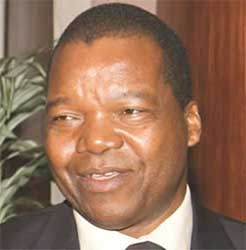Zimbabwe central bank has 'no tools' to fix economy

In his first statement since assuming the role of Reserve Bank governor on 1 May, John Mangudya said the past three years had been tough for the economy and for many Zimbabweans.
"The economy is weaker and the financial system is depressed," he said, admitting that the "Reserve Bank has no tools at the moment to influence the economy."
Zimbabwe is saddled with high unemployment levels and a dearth of foreign investment.
Many companies have closed down and those still operating are often unable to pay each other for services or meet loan commitments to banks. At the same time the tax base is narrowing and tax revenues plummeting.
"The lack of liquidity and its limited circulation within the economy remains the biggest challenge that the Zimbabwe economy is facing," he said urging private companies and state institutions to boost exports.
Frozen out of foreign debt markets and plagued by years of political crises and international sanctions, Zimbabwe faces what the central bank recently labelled a "severe and persistent liquidity crunch".
The country had hoped that China and other allies might come forward with financial assistance, but this has not happened.
Zimbabwe does not have its own currency, having ditched the Zimbabwean dollar in 2009 for multiple foreign currencies, including the US dollar and South African rand, after a prolonged period of hyper-inflation.
Starting from a low base, Zimbabwe's headline growth figures look healthy, although the government's projections of six percent expansion in 2014 are disputed by the World Bank, which predicts three percent.
Amid the renewed economic troubles, there have been glimpses of a softening tone from veteran President Robert Mugabe. Last month, he tried to convince foreign investors that his government's efforts to seize white-owned farms did not make the country a risky place to invest.
Source: AFP via I-Net Bridge